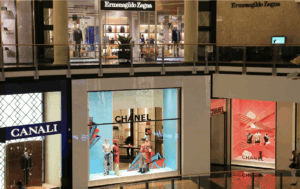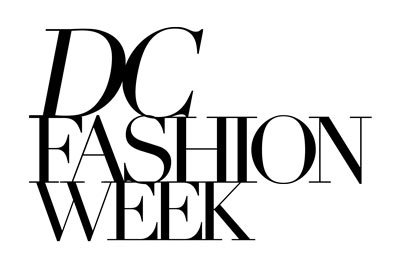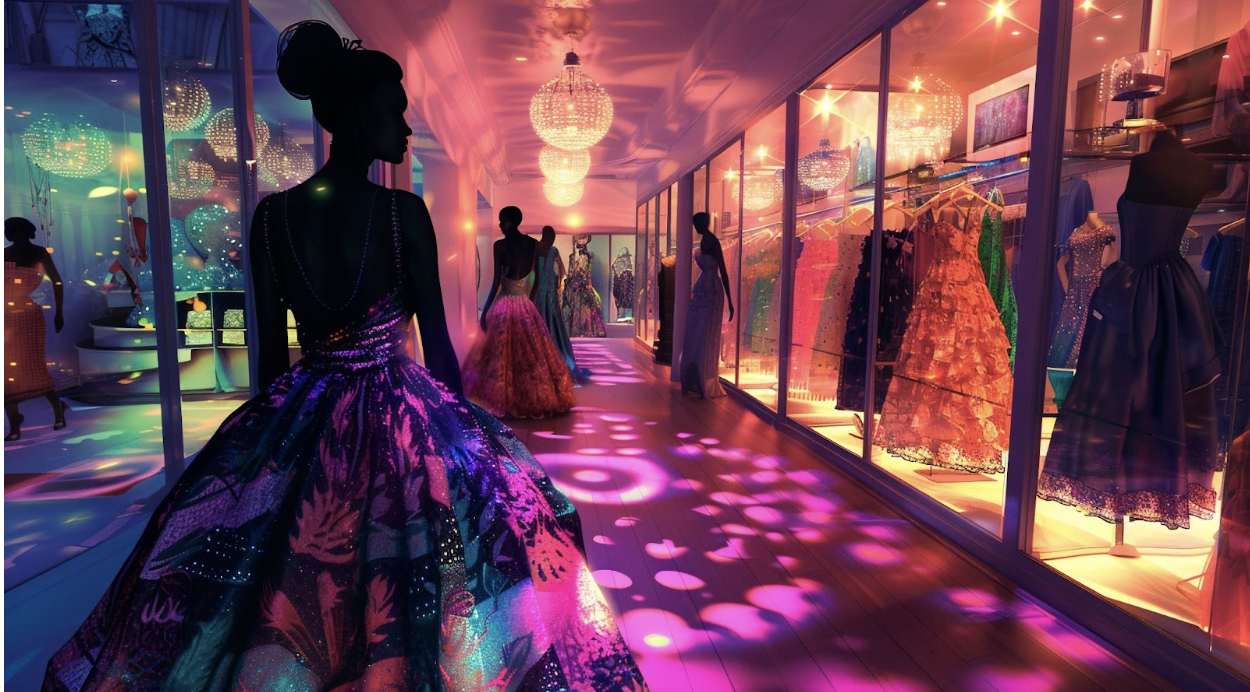The nation’s capital transforms into a haute couture hub each season as DC Fashion Week takes center stage, bringing together emerging designers, established brands, and fashion enthusiasts from across the globe. This prestigious event has evolved far beyond a simple runway showcase, becoming a comprehensive celebration of creativity, innovation, and the business of fashion. From the meticulously crafted garments that grace the catwalk to the strategic branding decisions that make or break a designer’s career, DC Fashion Week represents the convergence of artistry and commerce in the modern fashion landscape.
What sets DC Fashion Week apart from its counterparts in New York, Paris, or Milan isn’t just its unique political backdrop, but its emphasis on accessibility, diversity, and emerging talent. The event serves as a launching pad for designers who understand that success in today’s fashion industry requires more than just creative vision—it demands strategic thinking about brand identity, target demographics, and the practical elements that bring a collection to life.
The Evolution of Fashion Week Culture
Fashion weeks have undergone a dramatic transformation since their inception in the early 20th century. What began as intimate press presentations has evolved into massive multimedia spectacles that influence global trends and drive billions in revenue. DC Fashion Week exemplifies this evolution, embracing both traditional runway presentations and innovative digital experiences that reach audiences far beyond the physical venue.
The democratization of fashion through social media and digital platforms has fundamentally changed how fashion weeks operate. Designers now consider not just the immediate audience of buyers and press, but millions of potential consumers who will experience their collections through livestreams, Instagram posts, and behind-the-scenes content. This shift has created new opportunities for brands to tell their stories and connect with audiences in previously impossible ways.
The intersection of politics and fashion in Washington DC creates a unique atmosphere where style meets substance. Designers presenting at DC Fashion Week often draw inspiration from the city’s rich history, architectural landmarks, and the diverse communities that call the capital home. This cultural fusion results in collections that reflect both local identity and global influences, creating a distinctive aesthetic that sets DC Fashion Week apart from other fashion events.
Behind the Scenes: The Business of Fashion Week Production
Creating a successful fashion week requires meticulous attention to detail that extends far beyond the visible runway presentations. The infrastructure supporting these events involves complex logistics, from venue selection and lighting design to model casting and media coordination. Every element must work in harmony to create an environment where creativity can flourish while business objectives are met.
One of the most critical yet often overlooked aspects of fashion week production is the attention to detail in branding and presentation. Successful designers understand that every element of their presentation—from the music selection to the styling choices—contributes to their overall brand message. This comprehensive approach to brand building extends to practical considerations like customised clothing labels that reinforce brand identity and create lasting impressions with buyers and consumers alike. The right labeling strategy can transform a beautiful garment into a memorable brand experience that resonates long after the runway lights dim.
The collaboration between designers, production teams, and venue coordinators requires months of preparation and countless hours of refinement. DC Fashion Week’s success stems from its ability to balance creative freedom with professional execution, creating an environment where both established and emerging designers can present their best work under optimal conditions.

Emerging Designers and Brand Identity Development
DC Fashion Week has earned recognition for its commitment to showcasing emerging talent, providing a platform where new voices can make their mark on the fashion industry. These rising designers face unique challenges in establishing their brand identity while navigating the commercial realities of the fashion business. The journey from concept to runway requires not only creative vision but also strategic thinking about market positioning and brand differentiation.
The most successful emerging designers understand that building a sustainable fashion brand requires attention to every touchpoint with their audience. This holistic approach to brand building encompasses everything from social media presence and public relations strategy to the practical elements that customers interact with daily. Smart designers recognize that professional presentation extends beyond the runway, incorporating elements like high-quality promotional materials and carefully considered product packaging that reinforces their brand values.
Fashion week presentations offer emerging designers invaluable exposure, but the real work begins after the final model leaves the runway. Building lasting relationships with buyers, media, and consumers requires consistent brand messaging and professional execution across all channels. This is where attention to detail in branding elements becomes crucial for long-term success.
The Intersection of Fashion and Corporate Branding
The relationship between fashion and corporate branding has never been more intertwined than it is today. Companies across industries recognize the power of fashion partnerships and branded merchandise to connect with their target audiences in meaningful ways. DC Fashion Week serves as a prime example of how fashion events can create valuable branding opportunities for both designers and corporate partners.

Corporate sponsors and partners at fashion week events often leverage these relationships to enhance their own brand positioning while supporting emerging talent. This symbiotic relationship benefits all parties involved, creating opportunities for cross-promotion and brand elevation that extend far beyond the fashion industry. The most successful partnerships occur when brands share similar values and target demographics, creating authentic connections that resonate with audiences.
The trend toward branded corporate apparel has created new opportunities for fashion designers to work with companies seeking to elevate their professional image. High-quality branded jackets and other corporate wear items have become increasingly sophisticated, reflecting the growing understanding that professional attire serves as a powerful branding tool. This evolution in corporate fashion demonstrates how the principles showcased at events like DC Fashion Week influence broader business practices and professional standards.
Companies investing in premium branded apparel understand that their employees and partners serve as brand ambassadors, making every appearance an opportunity to reinforce brand values and create positive impressions. This strategic approach to corporate branding aligns perfectly with the attention to detail and brand consciousness that characterizes successful fashion week presentations.
Youth Culture and Fashion Week Influence
Fashion weeks have increasingly recognized the importance of connecting with younger demographics, understanding that today’s youth represent tomorrow’s consumers and tastemakers. DC Fashion Week exemplifies this trend by incorporating elements of youth culture and alternative fashion scenes into its programming, creating a more inclusive and diverse representation of contemporary style.
The influence of street culture, sports fashion, and alternative lifestyles on high fashion has created exciting opportunities for crossover collaborations and unexpected design inspirations. This cultural fusion reflects the reality that fashion boundaries continue to blur, with designers drawing inspiration from previously disparate sources to create fresh, relevant collections.

The integration of alternative lifestyle elements into mainstream fashion demonstrates the industry’s evolution toward greater inclusivity and cultural awareness. For example, the growing popularity of roller skating culture has influenced fashion trends, with designers incorporating athletic elements and vintage aesthetics inspired by skating communities. This trend has created demand for fashionable yet functional products like men’s roller skates that bridge the gap between performance and style, reflecting how lifestyle activities increasingly influence fashion choices and design decisions.
Fashion weeks that successfully integrate these diverse cultural influences create more dynamic and relevant experiences for attendees while opening new market opportunities for designers and brands. This inclusive approach helps ensure that fashion remains a vital and evolving form of cultural expression rather than an exclusive, static tradition.
Sustainability and Ethical Fashion at DC Fashion Week
The fashion industry’s growing focus on sustainability and ethical practices has become a central theme at fashion weeks worldwide, and DC Fashion Week has embraced this movement with increasing prominence in its programming. Designers presenting sustainable collections face unique challenges in balancing environmental responsibility with aesthetic appeal and commercial viability, but the results often push creative boundaries in unexpected ways.
Sustainable fashion encompasses various approaches, from using eco-friendly materials and production methods to implementing circular design principles that consider a garment’s entire lifecycle. DC Fashion Week provides a platform where these innovations can be showcased alongside traditional collections, demonstrating that environmental consciousness and high fashion are not mutually exclusive.
The movement toward ethical fashion extends beyond environmental concerns to include fair labor practices, transparent supply chains, and support for local communities. Designers committed to these principles often find that their values-driven approach resonates strongly with contemporary consumers, particularly younger demographics who prioritize social responsibility in their purchasing decisions.
Digital Innovation and Fashion Week Technology
Technology continues to reshape the fashion week experience, from virtual reality runway shows to augmented reality shopping experiences. DC Fashion Week has embraced these innovations while maintaining the personal connections and tactile experiences that make fashion weeks special. This balance between digital innovation and traditional craftsmanship represents the future of fashion presentation.
The integration of social media, livestreaming, and digital commerce platforms has expanded the reach and impact of fashion week events exponentially. Designers now have unprecedented opportunities to connect with global audiences and convert runway presentations into immediate commercial opportunities through digital channels.
The COVID-19 pandemic accelerated many digital innovations in the fashion industry, leading to hybrid events that combine physical and virtual elements. These innovations have democratized access to fashion weeks while creating new revenue streams and marketing opportunities for participating designers and brands.
Economic Impact and Industry Growth
DC Fashion Week generates a significant economic impact for the local community while contributing to the broader fashion industry’s growth and development. The event attracts visitors from around the world, filling hotels, restaurants, and local businesses while providing valuable exposure for the city’s cultural attractions and business districts.
The fashion industry’s economic contribution extends far beyond the immediate event, creating ripple effects throughout related industries, including textiles, manufacturing, retail, and media. Fashion weeks serve as crucial networking events where business relationships are formed, deals are struck, and industry trends are established.
Looking Forward: The Future of Fashion Week Events
As fashion weeks continue to evolve, events like DC Fashion Week are positioned to lead the industry toward more inclusive, sustainable, and technologically advanced presentations. The future of fashion weeks lies in their ability to balance tradition with innovation, creating experiences that honor the craft of fashion while embracing the possibilities of digital technology and global connectivity.
The success of future fashion weeks will depend on their ability to serve multiple constituencies: designers seeking exposure and commercial opportunities, buyers looking for the next trends, media covering industry developments, and consumers increasingly interested in the stories behind the clothes they wear. DC Fashion Week’s commitment to diversity, sustainability, and innovation positions it well for continued growth and influence.
The democratization of fashion through digital platforms will continue to expand opportunities for emerging designers while challenging established players to innovate and differentiate their offerings. This dynamic environment creates exciting possibilities for creative expression and business development in the years to come.
DC Fashion Week represents more than just a series of runway shows—it’s a celebration of creativity, a platform for business development, and a catalyst for cultural exchange. As the fashion industry continues to evolve, events like DC Fashion Week will play an increasingly important role in shaping the future of style, commerce, and creative expression. The convergence of artistry, technology, and business acumen showcased at these events provides a glimpse into fashion’s exciting future, where creativity and commerce work hand in hand to create meaningful experiences for designers, brands, and consumers alike.

